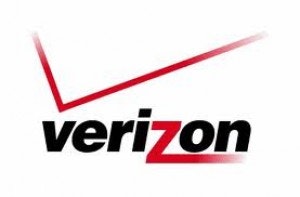Verizon Communications, Inc. (NYSE: VZ) closed at $43.95 on Friday evening, close to its 52wk high of $44.14 and around its approximate fair value. It has an average P/E ratio of 17.58 against industry average of 151.22. Its peer AT&T, Inc. (NYSE: T) has a P/E of 14.72 and peer Sprint Nextel Corporation (NYSE: S) doesn’t have positive earnings. Based solely on the P/E ratio, Verizon appears to be overvalued. The telecom sector has also been recently labeled as “near overbought” by the Bank of America Merrill Lynch. If you’re a contrarian like me, you would want to sell your Verizon stock first thing Monday morning. But hold that thought and hold your stock! Read on to see why I recommend so.
Steve Jobs wanted to have an exclusive telecom network for Apple (AAPL). He gave up his idea back in 2007 after realizing that breaking through a strong duopoly would be next to impossible. I’m talking about the two telecom networks that monopolize the American market today, Verizon Communications, Inc. (NYSE:VZ) and AT&T, Inc. (NYSE:T)
The two leaders lead the 2011-2012 ranking of the most valuable telecom brands in the world, with AT&T taking the second place, followed by Verizon at the third place. What makes the two stocks even more interesting is their industry positioning. The telecom sector has outperformed all the remaining 9 sectors of the S&P 500 index over the last 3 months. In fact, the S&P 500 Telecommunication Services Sector Index has seen a year to date gain of 11.89%. The sector remains defensive against economic strife simply because of increasing user base and the current users not wanting to cut back on their usage.
In the ensuing discussion, I’ll keep my focus on Verizon. Stay tuned for more on AT&T!
Verizon, a Dow 30 company, has 24.1 million wireline connections, 92 million wireless customers and approximately 16 million additional wholesale and other connected devices on its network, as of December 2011. Verizon was the first company to offer LTE (Long Term Evolution) network in late 2010, followed by peer AT&T. The company recently extended its 4G LTE network with an addition of 46 new markets to reach a total of 304 markets. With expansion of its service in 22 markets where it already had a presence, Verizon has the largest 4G LTE network as of now. A smaller but growing competitor Sprint has plans to start a network this summer.
Positives:
According to Verizon, 47% of its postpaid subscribers owned smartphones by the end of the first quarter, as opposed to 43.5% in the same quarter last year. Verizon presently offers 24 LTE smartphones and tablets, including the latest Samsung Galaxy S III. All telecom providers have seen a greater increase in wireless subscriber base in contrast to the wireline subscriber base, with the demand for smartphones especially being on the high side. I checked Sprint’s website and found that Samsung Galaxy S III is out of stock on preorders. With the launch of iPhone 5 expected this year in October , the new Samsung Galaxy S III out and Verizon’s new Share Everything data plans expected to be launched on June 28, the number of smartphone users for Verizon are also expected to increase by year end, lending positively to Verizon’s FY12 revenues.
The company was able to secure an EBITDA service margin of 45% in its wireless segment for FY11 which was the best in the industry, even with high handset subsidies.
According to last year’s annual consumer satisfaction survey, Verizon ranked as the best service provider, followed toe to toe by Sprint.
The almost finalized acquisition of Hughes Telematics expected to close in Q3 of 2012 will also help Verizon integrate vertically in automotive and fleet telematics marketplace including emerging machine-to- machine (M2M) services applications, thus bringing diversification to the company.
Most telecom providers including Verizon’s peer AT&T hold a strong cash position to continue their current dividend payouts. Verizon has been increasing dividend payout over the years, paying out more in cash than what it made in revenues. Dividend payout has increased from 60% in FY05 to over 230% in FY11. In recent months, albeit, two telecom providers Alaska Communications (Nasdaq: ALSK) and Frontier Communications (Nasdaq: FTR) have cut their dividends for further expansion.
Verizon is also expected to witness work force reduction benefits, including reduction in pension plan expenses. The number of employees has decreased over the past three years, from 194,400 in 2010 to 191,800 in Q1 2012.
Some dislike the company basing their argument solely on ethical grounds. It is true that Verizon was found guilty of overcharging its users in the past, but it later claimed to refund the over charges. It has recently settled a whistleblower lawsuit, paying $93.5M in settlement to the Government where it was charged with overcharging the Government. Verizon has also used conservative estimates to evade taxes in the past. The arguments are legit. Nonetheless, my support for Verizon is based on its operations and sector prospects. If the ethical issues don’t bother you, Verizon is one stock you would want to hold in the long term because of the strong dividend yield and expected price appreciation from sector stability. Adage Capital, Cliff Asness’ AQR Capital, and billionaire Ray Dalio’s Bridgewater are also bullish about Verizon (see Ray Dalio’s new stock picks).
Note: This article is written by Palwasha Saaim.



